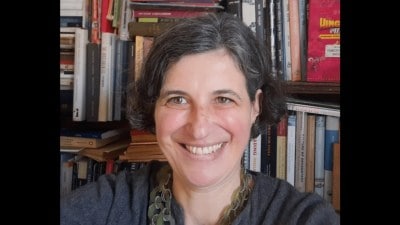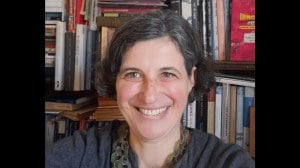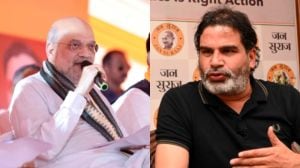Rice, Pak deny deadline on LeT, handover of Gul
The United States denied on Sunday that it had set a 48-hour deadline to Pakistan to act against Lashker-e-Toiba...

The United States denied on Sunday that it had set a 48-hour deadline to Pakistan to act against Lashker-e-Toiba (LeT), but said Washington’s relationship with Islamabad hinged on its response to the Mumbai terror attacks. Refuting reports that a deadline was set by India and the US, Secretary of State Condoleezza Rice said no such time frame was fixed.
Earlier, Pakistan had distanced itself from the report, which appeared in The Washington Post, saying Islamabad had agreed to a 48-hour deadline to act against the Lashkar and arrest at least three Pakistanis who India says are linked to the November 26 attacks. The Post quoted an unnamed Pakistani official as saying that India had asked Pakistan to hand over LeT commander Zaki-ur-Rehman Lakhvi and former ISI chief Lt Gen (retired) Hamid Gul.
“We do not have to respond to each and every provocative statement or comment in the media,” presidential spokesman Farhatullah Babar said when asked about the Post report.
Asked about a deadline being issued to Islamabad on Fox News Sunday, Rice too said “No”. “There is no timetable involved here. Obviously this is counter-terrorism at work and it is hard… The leaders in Pakistan were very clear with me that they understand the responsibilities and now we are waiting. We expect things to happen,” Rice said on the talk show.
She also said there was evidence of involvement “somehow” on Pakistan soil in the Mumbai terror strike and pressed Islamabad to act quickly to arrest suspects to ensure there are no “follow-on attacks”. “I think we do believe that there was — there is — evidence of involvement somehow on Pakistani soil… even if these were non-state actors, which I believe they were,” Rice told Fox News.
She also advised an “outraged” India to exercise restraint so as to not make the situation “worse”.
However, faced with increasing international pressure to act against the Lashkar and domestic compulsions, Pakistan’s civil and military leadership has decided that India would have to provide “solid evidence” before levelling “baseless allegations” against it.
This was decided during two meetings on Saturday that were chaired by Prime Minister Yousuf Raza Gilani and attended by senior ministers, military officials and opposition leaders. Reports in Islamabad said it was decided during the parleys that no representative of the ISI would visit India unless New Delhi provided proof of the involvement of any Pakistani “non-State actor”.
The meetings reviewed the security situation on Pakistan’s eastern and western borders and the fallout of the Mumbai attacks. The first meeting, at which opposition leaders were not present, decided to confront “negative propaganda by the Indian media” by explaining Pakistan’s position to the world, The News reported.
There was no official word on the discussions at the two meetings. A brief statement issued after the first meeting only said that it had discussed “various issues of national importance”.
The first meeting, which was attended by Defence Minister Chaudhry Ahmed Mukhtar, Foreign Minister Shah Mahmood Qureshi, Army Chief Gen Ashfaq Parvez Kayani and ISI chief Lt Gen Ahmad Shuja Pasha, lasted more than two hours.
In her appearance on the Fox News talk show, Rice said she asked Pakistan to extend “full and complete cooperation” into the probe, that also killed six Americans, Rice said it was a matter of “our relationship”. “I have made very clear — Americans also died in the attack — that the United States expects the full and complete cooperation of Pakistan and Pakistani action. And yes, it is a matter for our relationship. It is a very serious matter that Americans were killed in the attack as well,” Rice said.
“I made it very clear to the Pakistanis that… when something like this happens, the United States expects Pakistan to act,” Rice said.
Asked if the US had asked the Pakistan Government to arrest a former ISI chief, Rice said: “Well, I don’t want to get into the details of this. This is counter-terrorism work. And obviously, I don’t want to tip their hand or ours. But this is a time when Pakistan must act. They must act in concert with India, with the United States. Great Britain is helping,” she said.
Rice said though she could understand the frustration and anger of India, New Delhi should exercise restraint to avoid making the situation worse. “I understand the frustration and the anger in India. In fact, it felt a little bit to me like the US’s post-9/11. But in this case, there are actions that India could take that could make the situation worse,” she added.
“We don’t need a crisis in South Asia. The good thing is that I do believe there is a desire on India and Pakistan to improve their bilateral ties and despite their long history, they are really not each other’s primary threat and enemies… This is not 2001-2002, when there was virtually no communication between the two countries. The leaders of India and Pakistan — encouraged by the US — have gone a long way in improving their relations,” Rice said.



- 01
- 02
- 03
- 04
- 05




























